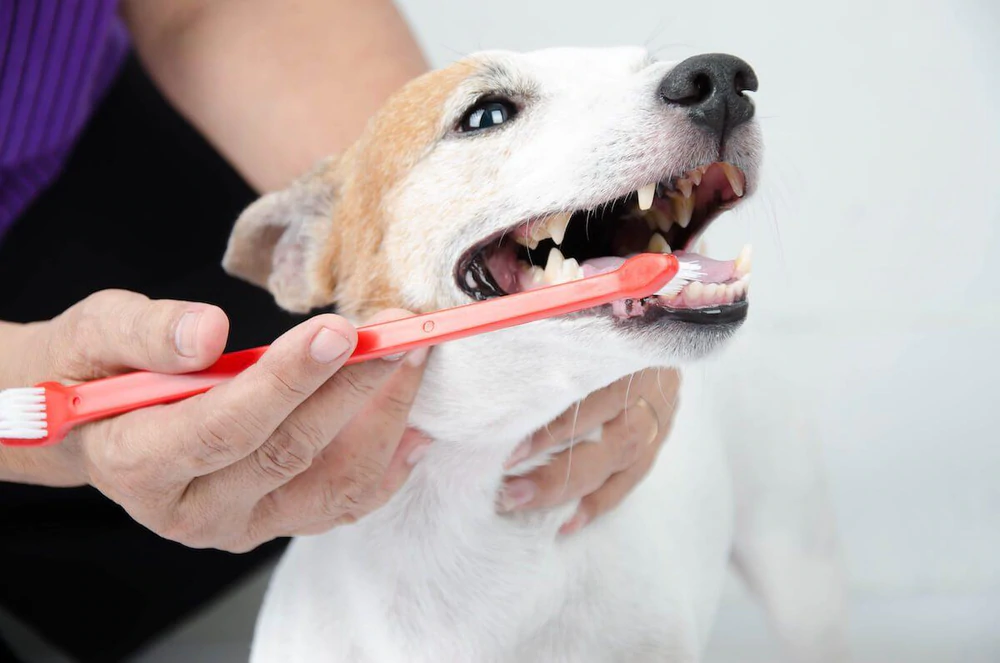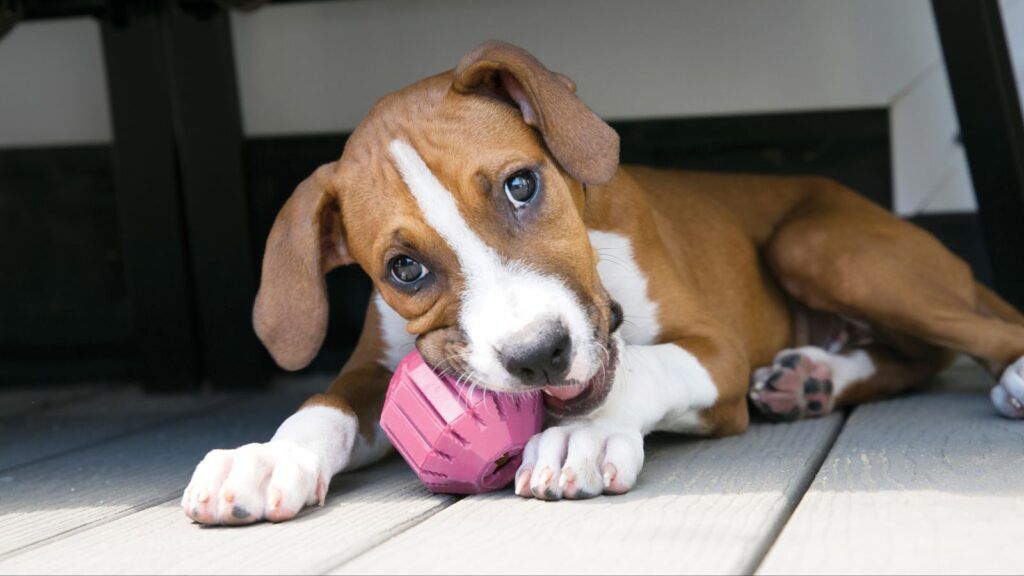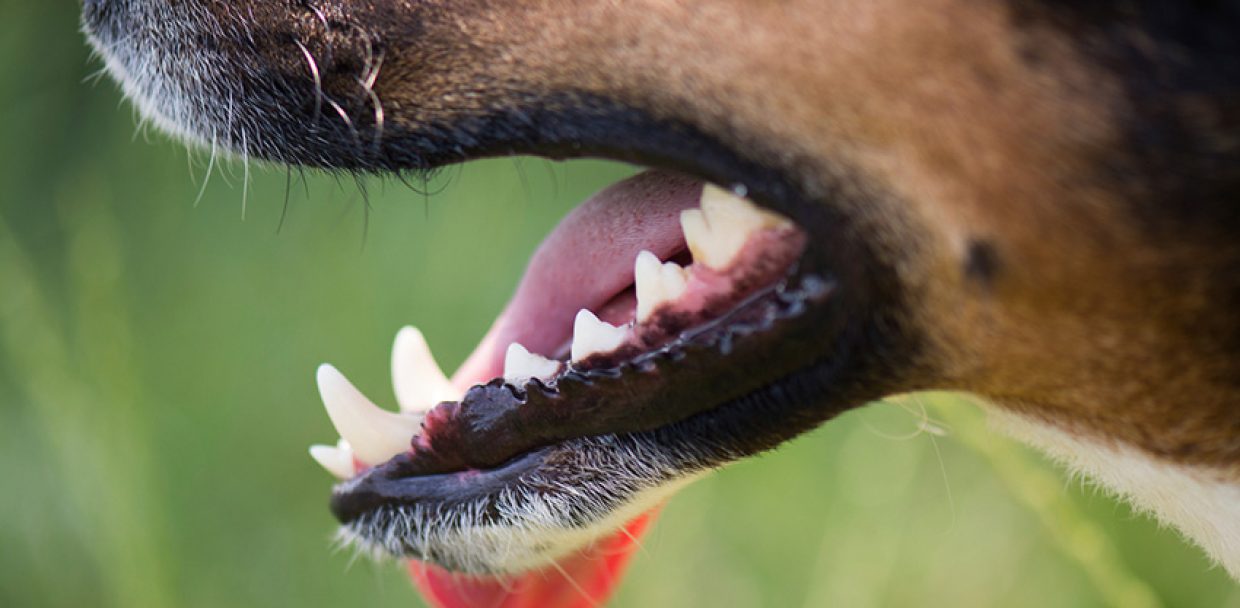Oral hygiene for your pet dog is as important as it is for human beings. Many dog owners have this misconception that they do not need oral hygiene as they are designed to take care of it themselves. Many think that since most animals in the wild do not need any dental care then why would the pet dog need it?
Well, that is not true. The wild environment and the home environment are totally different. Unlike in the wild, the home environment does not provide enough sources for them to clean their teeth themselves. In wild, different things can be found for the animal to chew on and clean its teeth properly.
Keeping your dog’s teeth clean and healthy is not a hard job. There are a few ways you can keep your dogs’ teeth clean. First of all, let us know the importance of dental health in your canine friend.
 Teeth brushing has been a part of our personal care. We do it every day and it is advised to brush our teeth twice a day for that healthy smile. What about the dog? Well brushing your dog’s teeth can be a great foundation for its good dental health.
You do not need to brush your dog’s teeth every day, once a week is enough for your dog to remove that plaque and tartar build-up. You can find brushes designed to fit a dog’s mouth. They have angled handles and soft bristles
Do not make the mistake of using your toothpaste for brushing your dogs’ teeth. The chemical present in our toothpaste is harmful to your dog when swallowed. So, get toothpaste that is specifically made for the dog. They are available in different flavors like chicken, peanut butter, and others. They are safe for your dog to swallow and they will also love their taste.
Brushing your dogs’ teeth might take a few practices but doesn’t take long. Try to establish a bit of brushing your dogs’ teeth regularly.
Teeth brushing has been a part of our personal care. We do it every day and it is advised to brush our teeth twice a day for that healthy smile. What about the dog? Well brushing your dog’s teeth can be a great foundation for its good dental health.
You do not need to brush your dog’s teeth every day, once a week is enough for your dog to remove that plaque and tartar build-up. You can find brushes designed to fit a dog’s mouth. They have angled handles and soft bristles
Do not make the mistake of using your toothpaste for brushing your dogs’ teeth. The chemical present in our toothpaste is harmful to your dog when swallowed. So, get toothpaste that is specifically made for the dog. They are available in different flavors like chicken, peanut butter, and others. They are safe for your dog to swallow and they will also love their taste.
Brushing your dogs’ teeth might take a few practices but doesn’t take long. Try to establish a bit of brushing your dogs’ teeth regularly.
 Every dog owner has the experience of their shoes getting damaged by their dog chewing on them. Well, for those in trouble maker chew toys are perfect. They are specifically designed for your dog to chew on. It satisfies their natural instincts to chew. This also helps improve their dental health by removing plaque and tartar buildup.
Chew toys come in various sizes and shapes, so you can choose the perfect one for your dog. They are made of a variety of materials ranging from plastic, rubber, and nylon.
Every dog owner has the experience of their shoes getting damaged by their dog chewing on them. Well, for those in trouble maker chew toys are perfect. They are specifically designed for your dog to chew on. It satisfies their natural instincts to chew. This also helps improve their dental health by removing plaque and tartar buildup.
Chew toys come in various sizes and shapes, so you can choose the perfect one for your dog. They are made of a variety of materials ranging from plastic, rubber, and nylon.
Importance of Dental Care
A dog’s oral care is as important as caring for its whole body. Bad dental health doesn’t only result in simple problems like bad breath or ugly teeth. There have been different cases of periodontal disease due to plaque. The result can be as serious as getting a life-threatening disease. Here are some effects of poor dental health. – Bad Breathe – Loss of teeth – Mouth and Gum Pain – Excessive Drooling – Discolored Teeth – Loss of Appetite – Organ Damage due to Bacteria of Plaque entering the Blood Streams – Worse Dental Disease Here are some oral diseases that your canine may suffer.Halitosis
Halitosis or bad breath is the first symptom seen in a canine with pro dental health. It is caused when the bacteria gets stuck in the teeth or mouth of the dog. Sometimes the bacteria also result in infection which can further produce a worse odor. If you notice that your dog’s mouth rating to smell worse then there is a chance of tooth and gums infection. If the infection is not treated then it is likely to spread around the mouth and cause further complications.Cysts And Tumor
Sometimes your dog’s mouth starts to have lumps. These lumps may not be harmful in most cases but sometimes these lumps can be cysts and tumors. So it is best to visit the vet or get the lump checked through a biopsy and if needed removed.Gingivitis
When a heavy amount of plaque gets stored, it leads to inflamed gums. This causes Gingivitis. It is reversible in the early stage. You can remove them by regular brushing and cleaning. But if you notice bleeding gums or changes in the colors of the gum then it is advised that you take your dog to the vet.Periodontal Disease
When an infection is formed between gums and teeth then it is periodontal disease. The infection can lead to swelling, difficulty in eating, nasal discharge, and pain. In the early stage, these types of diseases can be treated with proper medication. So, if you notice signs of periodontal disease then it is best to take your canine friend to the vet.Prevent Dental Problem
Early precautions can help minimize many dental problems. Here are five ways that you can do to prevent dental problems in your dog.Regular Teeth Brushing
 Teeth brushing has been a part of our personal care. We do it every day and it is advised to brush our teeth twice a day for that healthy smile. What about the dog? Well brushing your dog’s teeth can be a great foundation for its good dental health.
You do not need to brush your dog’s teeth every day, once a week is enough for your dog to remove that plaque and tartar build-up. You can find brushes designed to fit a dog’s mouth. They have angled handles and soft bristles
Do not make the mistake of using your toothpaste for brushing your dogs’ teeth. The chemical present in our toothpaste is harmful to your dog when swallowed. So, get toothpaste that is specifically made for the dog. They are available in different flavors like chicken, peanut butter, and others. They are safe for your dog to swallow and they will also love their taste.
Brushing your dogs’ teeth might take a few practices but doesn’t take long. Try to establish a bit of brushing your dogs’ teeth regularly.
Teeth brushing has been a part of our personal care. We do it every day and it is advised to brush our teeth twice a day for that healthy smile. What about the dog? Well brushing your dog’s teeth can be a great foundation for its good dental health.
You do not need to brush your dog’s teeth every day, once a week is enough for your dog to remove that plaque and tartar build-up. You can find brushes designed to fit a dog’s mouth. They have angled handles and soft bristles
Do not make the mistake of using your toothpaste for brushing your dogs’ teeth. The chemical present in our toothpaste is harmful to your dog when swallowed. So, get toothpaste that is specifically made for the dog. They are available in different flavors like chicken, peanut butter, and others. They are safe for your dog to swallow and they will also love their taste.
Brushing your dogs’ teeth might take a few practices but doesn’t take long. Try to establish a bit of brushing your dogs’ teeth regularly.
Providing Dental Chews to Nibble
There are different dog chews available for the dogs. They are specifically designed to minimize plaque and tartar build-up and stimulate your dog’s treat craving. Most dental chews come in different sizes and shapes with ridges for your dog to dig its teeth. It also promotes blood flow in the gums of your dog. keeping your dogs’ teeth strong.Dog Dental Spray
Dental spray for your dog is a quick and easy way to minimize your dog’s bad odor. The sprays are designed to kill the bacteria in the mouth of your dog. This kills the odor-producing bacteria leaving your dog’s mouth smelling fresh and ready for kisses. These sprays can also be used in between brushing as it also has the properties of removing plaque and tartar buildup. These sprays are easy to use, a few sprays around the teeth and the gum of your dogs, and let the spray do its magic.Chew Toys
 Every dog owner has the experience of their shoes getting damaged by their dog chewing on them. Well, for those in trouble maker chew toys are perfect. They are specifically designed for your dog to chew on. It satisfies their natural instincts to chew. This also helps improve their dental health by removing plaque and tartar buildup.
Chew toys come in various sizes and shapes, so you can choose the perfect one for your dog. They are made of a variety of materials ranging from plastic, rubber, and nylon.
Every dog owner has the experience of their shoes getting damaged by their dog chewing on them. Well, for those in trouble maker chew toys are perfect. They are specifically designed for your dog to chew on. It satisfies their natural instincts to chew. This also helps improve their dental health by removing plaque and tartar buildup.
Chew toys come in various sizes and shapes, so you can choose the perfect one for your dog. They are made of a variety of materials ranging from plastic, rubber, and nylon.




